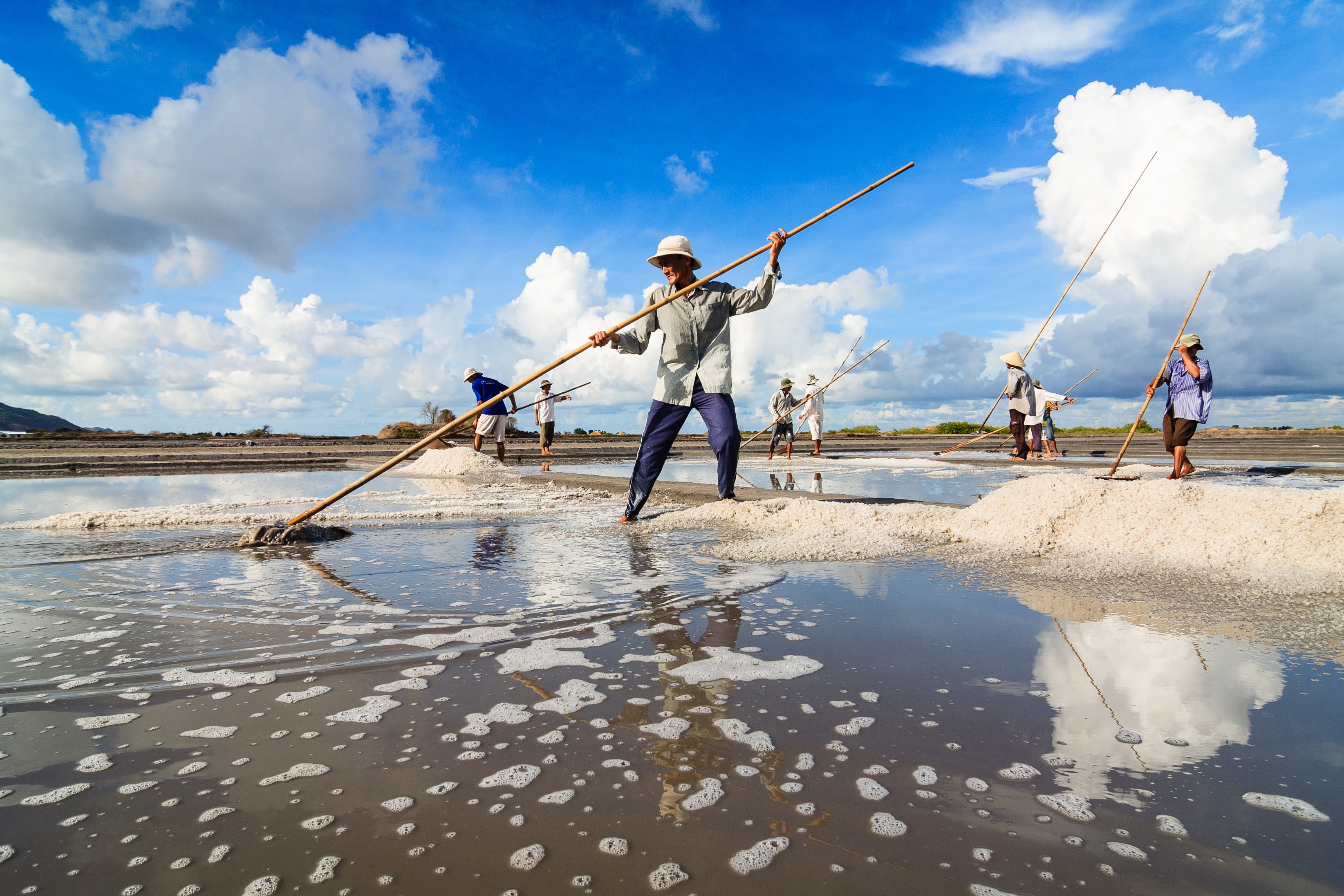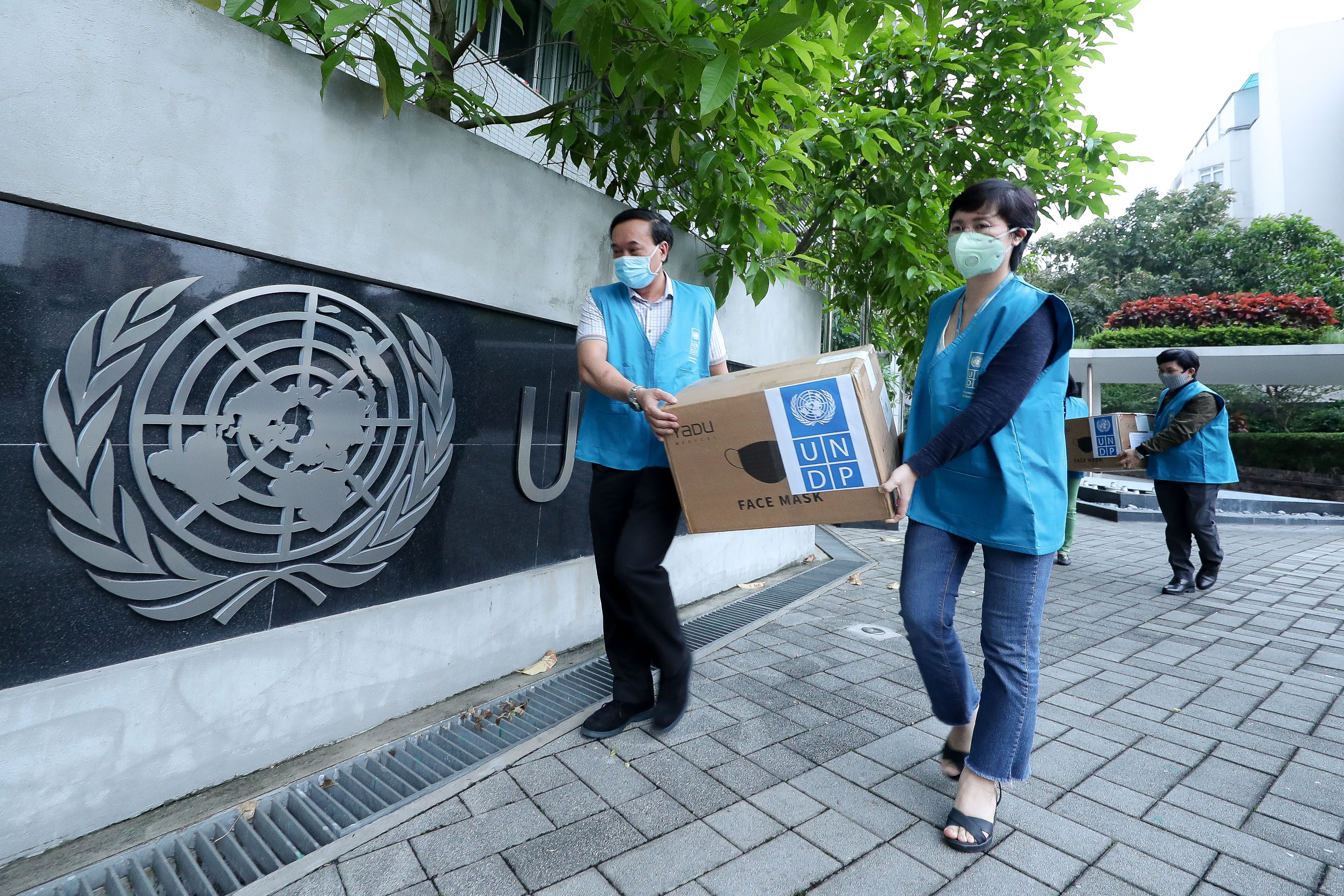Photo: Shutterstock/ UNDP Viet Nam
4 June 2019, Hanoi, Viet Nam. The Ministry of Agriculture and Rural Development (MARD) hosted the closing workshop of the Integrating Agriculture in National Adaptation Plans (NAP-Ag) programme, a multi-country support initiative co-led by the UNDP and FAO and financed by the Government of Germany (BMU). It provides technical assistance to identify and integrate climate change adaptation measures into relevant national planning and budgeting process, with a focus on the agricultural sectors.
In Viet Nam, the agriculture sector contributes 14.5 percent of the GDP and employs at least 35.4 percent of the labour force. MARD Vice Minister Mr. Nguyen Hoang Hiep opened the session by stating that "agriculture remains the backbone of the Vietnamese economy sector and is pivotal for poverty alleviation in Viet Nam, especially in rural provinces where 66 percent of the population lives." While the productivity of the sector keeps rising (3.4 percent in 2018), climate change poses a serious threat to agriculture, in the form of droughts, rainfall and temperature variability, increased frequency of extreme weather events and rising salinity levels in soil. Ms Cailtin Wiesen, UNDP Resident Representative, stated that "Increasing climate ambition in sectors like agriculture is critical to Viet Nam’s efforts for sustainable development and green future in which no one is left behind." The findings under the NAP-Ag are essential as they both inform the review and update of the Nationally Determined Contribution (NDC) and the National Adaptation Planning (NAP) process, which started in 2019.
The NAP-Ag programme has supported the Government of Viet Nam to enhance their adaptation planning strategies to address these increasing sectoral risks. The programme improved data on climate risks, conducted comprehensive national level vulnerability assessments, identified climate change adaptation practices, and evaluated loss and damage in the agricultural sectors. Throughout the workshop, sectoral experts from MARD presented their findings and conclusions on these activities and the planning department further explained how these results will be translated into upcoming plans and strategies, while considering climate risks and socio-economic development plans.
The closing workshop was designed to be participatory, transparent and informative in order to share lessons learned and practical examples of what has been done in the agricultural sectors that can be tailored and replicated in other sectors. The Ministry of Natural Resources and Environment (MONRE) who is leading the NAP process, as well as the Ministry of Planning and Investment (MPI) and the Ministry of Transport (MOT) were invited to share their thoughts during an insightful panel discussion chaired by the Mr. Chu Van Chuong, Deputy Director General of ICD-MARD.
This discussion offered an opportunity for MONRE to communicate the updated timeline and workplan for the NAP process, which is due by the end of 2019. Later, Ms. Doan Thi Hong Tham, Environment Department, Ministry of Transport (MOT), highlighted the importance of the close collaboration between MARD and MOT in transporting agricultural products and presented the challenges to developing adaptation strategies such as a lack of environmental awareness in the ministry and limited financial resources. The panelists from different ministries further reiterated their willingness to collaborate and comment on the draft NAP document, with the aim of delivering a joint and scientifically grounded plan to the Prime Minister.
All ministries agreed on the need to develop a NAP which is both feasible and practical and can be implemented in short to mid-term, with no-regret adaptation measures. They also highlighted new and innovative pathways for enhanced collaboration. For example, increasing the fluvial transports, via sluices and canals, is a low-carbon solution to transport agricultural products. On this topic, the extensive mapping of current and future risks conducted during the NAP-Ag programme, could be leveraged by other ministries. The private sector was identified as a source of finance for adaptation and participants highlighted the potential of public-private-partnerships to drive investments towards a low-carbon transition in Viet Nam.
MARD stressed its commitment to enhancing transparency and improving access to information to achieve sustainable and efficient adaptation strategies in the agricultural sector. Viet Nam’s Climate Risk open platform, for instance, aims to make information accessible for all ministries, partners, researchers and NGOs. It compiles vulnerability assessments conducted in four sub-sectors (crop, livestock, aquaculture, and irrigation infrastructures), with socio-economic data and risk and hazards mapping for all the Vietnamese provinces. The CSA website takes stock of the Climate Smart Agriculture practices in Viet Nam and is regularly updated to support farmers and agro-business, in the transition toward climate-resilient agricultural production. For each identified CSA practice, a brief note presents the technique, the cost and even the contact details of farmers.
Mr. Chu Van Chuong was then named by the Netherlands Development Organisation SNV, a ‘gender champion’, for bringing the different priorities, needs and realities of women at the core of the planning and implementing adaptation process. This emphasis on gender-sensitive adaptation planning resulted in the integration of sex-disaggregated data into the Monitoring and Evaluation (M&E) framework presented at the workshop.
In the afternoon, Ms Rohini Kohli Lead Technical Specialist, National Adaptation Plans, UNDP discussed experiences and lessons learned from other countries supported by the NAP-Ag programme and highlighted how these could be used to inform planning and budgeting in Viet Nam. Technical sessions allowed sectoral experts to further contribute and refine some of the recommendations made for each sub-sector and MARD stressed its willingness to share its experiences with other sectors that have not yet started their sectoral NAP processes.
Mr. Chu Van Chuong concluded the workshop by emphasizing that the NAP-Ag programme has allowed Viet Nam to deepen its understanding of the sectors’ vulnerabilities, while recognizing current and future adaptation practices that would benefit the people and the economy.

 Locations
Locations




















